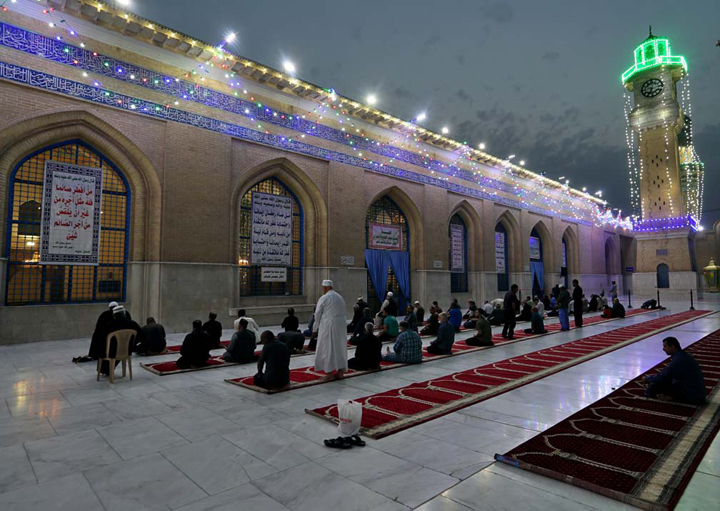
LEONARDO Sumaylow, a 43-year old power plant operator in Baghdad, heaved a sigh of relief when he saw the news—the Philippine government is now allowing OFWs in Iraq like him to come home for vacation and return to Iraq without hassle.
“I can come home to the Philippines. Hopefully, I can spend Christmas there,” Sumaylow told BusinessMirror, partly in Filipino.
Filipinos in Erbil in the autonomous region of Kurdistan in Iraq also welcomed the decision of the Departments of Foreign Affairs and of Labor and Employment to partially lift the ban on travel to the Middle East country.
“We called up each other, crying…Many of us had relatives in the Philippines who died, but we couldn’t return for two years,” Annie Saucelo Astillo, a community leader in Erbil, said in a Facebook live session.
Chief accountant Armando Catapang, 67, couldn’t stop sobbing when he heard the news directly from Philippine Ambassador Generoso Calonge.
“I felt like superman flying on clouds,” Catapang told BusinessMirror. “It was the call of the century.”
Five of his family members died in a span of less than two years—his two brothers, his mother-in-law and two sisters-in-law.
Catapang has been in working for eight years in Sulaymaniyah, a province in the autonomous region of Kurdistan. Before the pandemic, he would always go on vacation at least three times in a year. So when the ban was imposed, he said, “Suddenly, I felt like I was imprisoned.”
Iran-US impasse
The government earlier imposed a ban on deployment of Filipino workers in Iraq following the impasse between Iran and the United States in December 2019. At that time, US President Trump ordered the killing of a top Iranian commander at the Baghdad airport, triggering speculation of a spillover of conflict to Iraq where there are 5,000 US troops. Some Filipinos who were taking their Christmas or New Year vacation in 2019 lost their jobs—many of them in oil companies that paid twice the salaries they were getting in the Philippines—because they were prevented from leaving the country for Iraq.
Sumaylow was one of those stranded in the Philippines in 2020. When his employer told him he would lose his job unless he finds his way to Iraq, he thought of another way to skirt the travel ban. “It was good I had a valid US visa. But most of my coworkers did not,” he said. From Manila, he flew to the US and then to Baghdad.
During the pandemic, some OFWs who needed to come home for emergencies like a family member dying of Covid-19 or other disease, resorted to other “creative” means. Some flew to Dubai and cited attending to their business franchises, others sought help from families in Europe so they could stay for a few weeks before flying to Iraq. Others with no excuse to travel to other countries were forced to pay hefty bribes—reportedly at US$2,000 so that they can be allowed to fly straight to Iraq.
There are 20,000 Filipinos in Iraq, half of them in Erbil and the rest in Baghdad and other areas.
DFA lowers alert level
The DFA announced Tuesday that it has lowered the alert level for the whole of Iraq from Alert Level 4 or mandatory repatriation to Alert Level 3 or voluntary repatriation. Philippine Ambassador to Baghdad Generoso Calonge said the situation on the ground already reflects that they are not forcing OFWs to be repatriated since March 2020 when the US-Iran conflict simmered down. The general election last month also helped him persuade Manila to ease the restrictions, at least on OFWs who have been clamoring in social media for a reprieve from the ban.
Following the partial lifting of the travel ban by the DFA, the Philippine Overseas Employment Administration Governing Board issued a resolution exempting returning OFWs from the deployment ban under the Balik Manggagawa Program.
Calonge said since there is no Philippine labor office in Iraq, the Embassy could not issue an Overseas Employment Certificate (OEC) for returning OFWs. “What we do is issue a certification that workers can bring to any POEA office anywhere in the Philippines,” he told Business Mirror.
Last week, Calonge issues to Apolonio Fortu Jr, a fuel specialist in Baghdad, the first certificate of exemption to the deployment ban on returning workers to Iraq.
Calonge urged returning OFWs to be fully vaccinated prior to their trip to the Philippines.
Sumaylow said he just wished that the government would no longer require quarantine for fully vaccinated OFWs so that he can spend more time with his family in Surigao del Norte.

